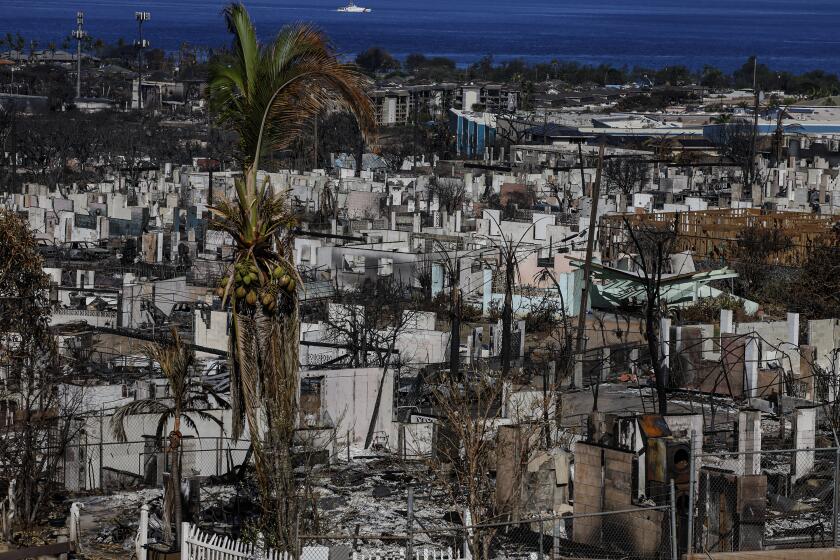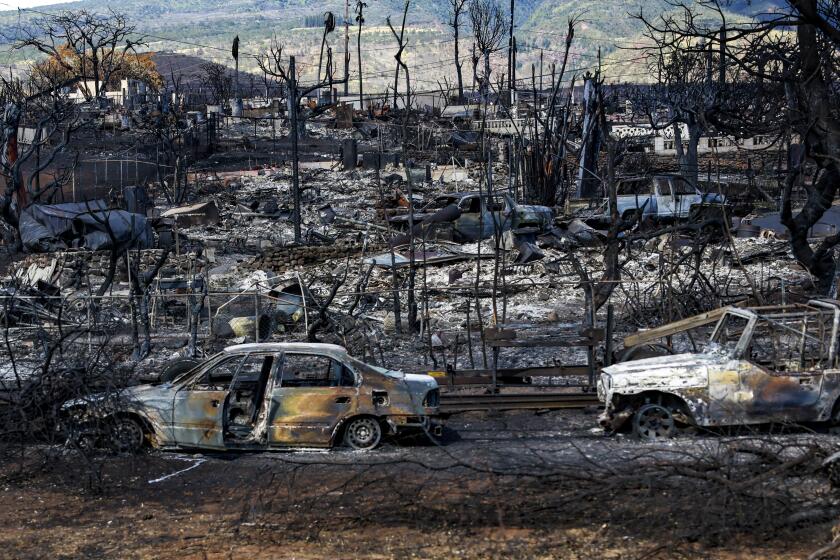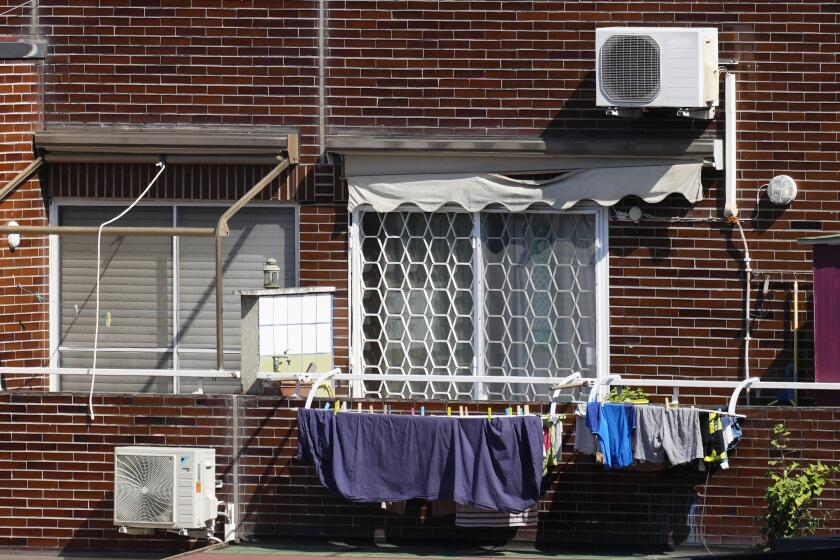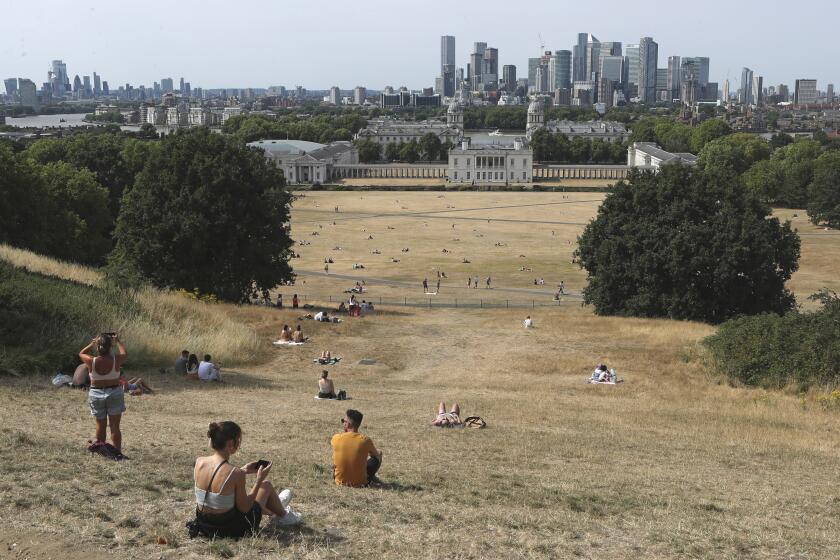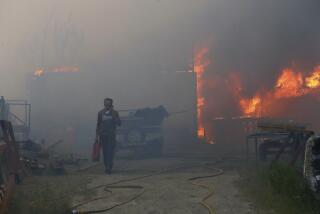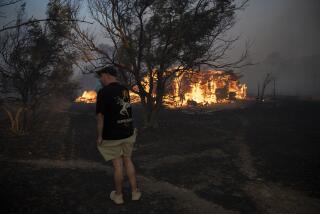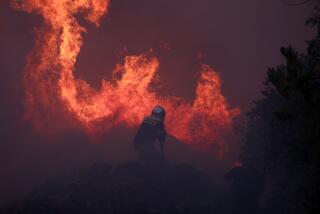Greece struggles to control the European Union’s largest-ever wildfire and other blazes
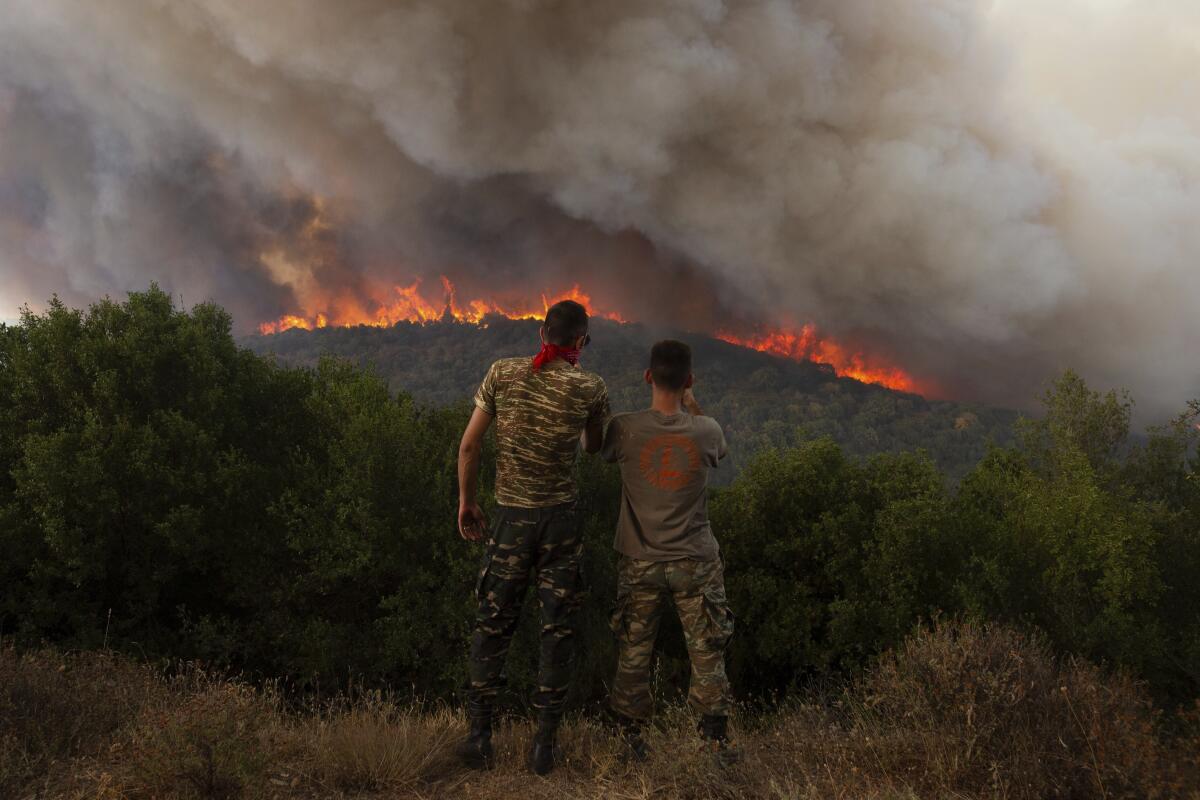
ATHENS — Firefighters struggled Thursday against strong winds and hot, dry conditions to tame multiple wildfires ravaging Greece, including one in the country’s northeast that officials say is the largest ever recorded in the European Union.
The fires have left 20 people dead over the last week. Eighteen of those, including two boys between 10 and 15 years old, are believed to be migrants who crossed the nearby border with Turkey. Their bodies were found by firefighters near a shack in a burned forest area near Alexandroupolis in northeastern Greece. Sixty firefighters have been injured, fire department spokesman Ioannis Artopios said.
The wildfire in the Alexandroupolis region, burning for a sixth day, combined with smaller blazes to create a massive inferno that has consumed homes and vast tracts of forest and triggered multiple evacuations of villages and of the city’s hospital.
With more than 282 square miles burned, the combined blazes “are now the largest wildfires on record the EU has faced,” European Commissioner for Crisis Management Janez Lenarcic said on X, the social media platform formerly known as Twitter.
“We must continue strengthening national & collective prevention and preparedness efforts in view of more brutal fire seasons,” he wrote.
Elsewhere in Europe, fires on Tenerife in Spain’s Canary Islands, in northwestern Turkey near the border with Greece, in Portugal and in Italy were being brought under control, officials said.
They thought the grass fire was contained, but wind conditions were still extreme. Now the decision to pull firefighters away shortly before the Maui fire reignited has become a flashpoint, as questions mount over whether more could have been done to stave off the destruction.
Firefighters in Greece were battling dozens of other fires, including a major blaze on the outskirts of Athens that scorched homes and encroached on one of the last green areas near the Greek capital, the national park on Mt. Parnitha. On Wednesday alone, firefighters battled 99 separate blazes across the country, authorities said.
Greek Climate Crisis and Civil Protection Minister Vassilis Kikilias said arson was to blame for some of the blazes near Athens.
“Some ... arsonists are setting fires, endangering forests, property and above all human lives,” Kikilias said in a televised statement. “What is happening is not just unacceptable but despicable and criminal.”
The minister said nine fires had been set in the space of four hours Thursday morning in the area of Avlona, in the northern foothills of Mt. Parnitha.
Disasters like the Lahaina fire are becoming increasingly likely as warmer temperatures, development, and land management policies create conditions ripe for fire.
“You are committing a crime against the country,” Kikilias said. “You will not get away with it. We will find you, you will be held accountable to justice.”
With firefighting forces stretched to the limit, Greece has asked other European countries for assistance. Germany, Sweden, Croatia and Cyprus sent aircraft, while dozens of Romanian, French, Czech, Bulgarian and Albanian firefighters have been helping on the ground.
Artopios, the Greek fire department spokesman, said 260 firefighters, including more than a dozen from France, were battling the Parnitha fire, supported by 10 planes and 11 helicopters. Bulgarian, Albanian, Romanian and Czech firefighters with vehicles were helping in the Alexandroupolis fire.
With their hot, dry summers, Southern European countries are particularly prone to wildfires. EU officials have blamed climate change for the increasing frequency and intensity of wildfires in Europe, noting that 2022 was the second-worst year for wildfire damage on record, after 2017.
Rising global temperatures are dropping air conditioning from luxury to a necessity in many parts of Europe.
In Spain’s Tenerife, a fire that has scorched 58 square miles was being brought under control.
Canary Island regional President Fernando Clavijo said Thursday that the blaze had “not gained a single square meter” for the first time in over a week.
He said firefighters hoped to declare the fire totally under control later Thursday, but warned that high afternoon temperatures could ignite more pockets of fire. Of the 12,000 people forced to evacuate their homes earlier in the week, only about 200 were still unable to return.
In Turkey, firefighters in northwestern Canakkale province Thursday brought a wildfire under control less than 48 hours after it erupted amid high temperatures and strong winds, Turkish Forestry Minister Ibrahim Yumakli said.
Heat waves and drought swept across much of Europe last summer, with the temperature in Britain rising above 104 degrees for the first time on record.
Yumakli said the fire, which had forced the evacuation of 11 villages, had affected 15 square miles, including about 5½ square miles of agricultural land.
A firefighting volunteer who was injured and six other people who suffered from smoke inhalation were being kept under observation in hospitals, Yumakli said.
“We are extremely happy that there was no loss of life,” Yamukli said. “However, we are heartbroken for other creatures of the ecosystem that were affected.”
Shipping traffic through the Dardanelles Strait, a major maritime thoroughfare linking the Aegean Sea with the Sea of Marmara, was being partially restored to one lane only after being completely suspended as fire-dousing aircraft used the waterway to pick up water.
Record heat. Raging fires. What are the solutions?
Get Boiling Point, our newsletter about climate change, the environment and building a more sustainable California.
You may occasionally receive promotional content from the Los Angeles Times.
Yumakli said that another fire in central Turkey had also been brought under control and that there were no other active wildfires in the country Thursday.
Two large fires in Portugal and a smaller one in Italy were brought under control by Thursday, those countries’ authorities said, but temperatures — and the risk of new fires — remained high.
More to Read
Sign up for Essential California
The most important California stories and recommendations in your inbox every morning.
You may occasionally receive promotional content from the Los Angeles Times.
